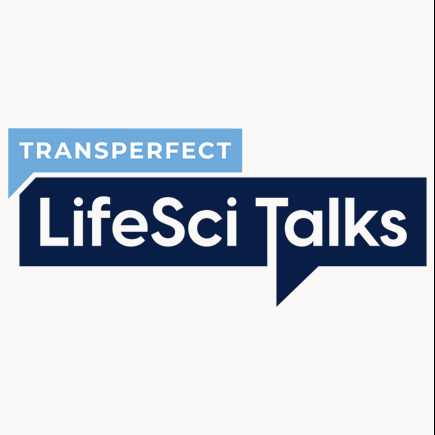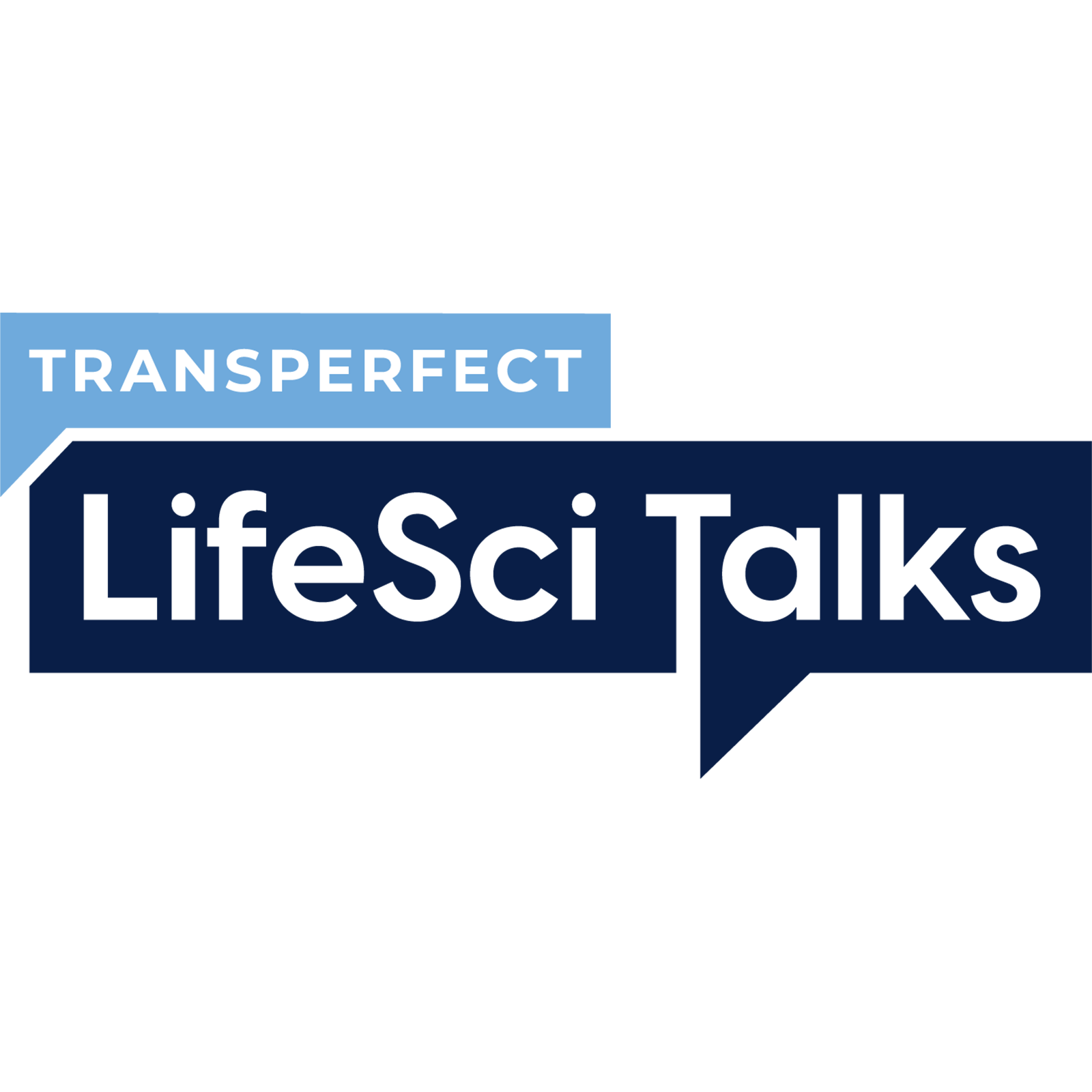Episode Transcript
Hello, and welcome to another episode of TransPerfect LifeSci Talks. I'm Mark Wade. Today I'm joined by Dr. Meredith Smith. And Dr. Smith is going to talk to us about implementation science, which is a new group in the Evidera organization, Dr. Smith, Meredith, welcome.
Thanks. I'm happy to be here.
"Implementation science" – it's a whole new concept. How would you define it? Can you give me the textbook definition, please?
Sure! I mean, there are actually a number of definitions out there. But one of the most comprehensive and widely used is that developed by the National Institutes of Health. NIH defines implementation science as the study of methods to promote the adoption and integration of evidence-based practices, interventions and policies into routine healthcare and public health settings to improve the impact on population health.
Very wordy. Put that in more layman's terms if possible.
Sure. In other words, implementation is a systematic scientific approach to asking and answering questions about how we get what works, what's been shown to work, to people who need it for as long as they need it with greater speed, greater fidelity, greater efficiency, and greater quality and coverage.
So, I know what it is, but why do we do it?
Well, it's really relevant to new medicinal products and other new healthcare innovations in that it's been very extensively documented that there's a gap. There's a gap between the development of a new type of innovation or medicinal product, and its actual implementation or uptake into healthcare delivery. On average, it's been shown that only approximately 14% of new healthcare innovations ever get adopted into healthcare practice. And of that 14%, it can take up to 17 years for that adoption to occur. And what that means is what we call a failure to translate research findings into clinical practice. It means that anywhere between 30 to 40% of patients don't get treatments of proven, proven effectiveness, and 20 to 25% of patients get care that's not needed or worse, potentially harmful to them. And this gap is also known as what we call the no-do gap, right. And implementation science really addresses that gap by identifying barriers that slow or otherwise impede the uptake of new proven healthcare interventions through the use of proven strategies.
And I'm assuming that speaks as well to wastage of therapies being used when there was no need to do that in the first place. So there's a lot of waste going on there.
Yeah, that's a great point. Implementation is also about what we call de-implementation. In other words, taking, practices or approaches or interventions out of the established care flow as well. So it's a great point, Mark.
So, tell me then, what are the regulators saying? Where do they come off on this?
Well, we're seeing the regulatory authorities really starting to pay attention to implementation science. I'll, for example, call out the Food and Drug Administration and the European Medicines Agency, who are starting to include some aspects of implementation science into some of their new guidances. And, there's a sense that they're beginning to understand the implications for this type of research across the drug development life cycle. And I'll just give you one example. One area where this has been particularly evident is in terms of post-marketing drug safety programs.
My next question!
New guidances that have been issued by the FDA, and updated guidance by the EMA on how to design, implement, and evaluate new drug safety programs, otherwise known as what we call risk minimization programs. And these revised or updated guidances are incorporating methods and approaches from implementation science. Another example is in the area of diversity regulators are very interested in improving diversity in clinical trial participants and implementation science methods are being used to test and evaluate new strategies to improve clinical trial diversity,
I suppose, in a way that kind of speaks to the clinical outcome aspect of it. So we're getting much better data. If you have that diversity inclusion, we're executing studies that are true to form, we're removing some of the ways that we talked about. So I think that is exactly what studies today need – that kind of laser sharp focus.
Yeah, I would agree. I would definitely agree there. Also, I can talk a little bit about some of the methods and approaches that really characterize implementation science. Some of the hallmarks of implementation science research are the use of theories, models, and frameworks to guide a more comprehensive and systematic assessment of the context of care, what we call contextual analysis. And this kind of contextual information can help to inform how well an intervention will be actually taken up within a specific clinical care context. And, in order to understand that we would look at issues around the feasibility of the intervention, the new intervention, it's appropriateness, it's acceptability to healthcare professionals, for example.
Also would also be acceptable to be cognizant of the cultural, outtake, cultural idiosyncrasies of the subjects. Is that taking at that as well?
Absolutely. We would look at all these issues that would relate to patients as well as healthcare professionals and cultural sensitivity. Is clearly one of those, yes,
How does this then translate, excuse the pun, but how does this translate to the actual providers, the people at grassroots level? Will this have any impact on them? I'm thinking now about practitioners. I'm thinking about prescribers. I'm thinking about people who actually implement these things. Will it have any impact downstream?
Yeah, absolutely. One of the hallmarks of implementation science is that it's what it's called stakeholder-centered. In other words, the end users are critical to understand their perspective in any plans for implementing a new innovation. So, implementation science provides a systematic way to get their input and then to incorporate their input into the implementation of the new intervention.
Excuse my ignorance, but the implementation that you're talking about, those guidelines, are they prescriptive and are they defined, or is this so new that we're still finding our way? I'm just curious. Because you actually said there's no regulations out there right now, really. So I'm just wondering how well prescribed is this process?
So, implementation science is an interdisciplinary field, and it has drawn heavily upon some of the continuous quality improvement approaches that are very familiar to regulators and are part of guidances to date. So it's not as if it's a completely different language or a completely different set of constructs. It's just being used in a different way here. This is to really think about how we get new products, for example, or other innovations embedded into the clinical care pathway.
Does that mean, does that mean that we're not waiting for regulators to make an opinion or to actually give us concrete guidelines? Or are you saying that they already exist in other guidelines as it were in other standards? I'm just curious.
There's definitely elements of continuous quality improvement in some regulations. But, I think that moving forward, we've already started to see them in drug safety guidances, we're already just starting to see this. I think that, as this field becomes more and more integrated into the kind of pharmaceutical lifecycle development, that this will be reflected in guidances moving forward, I think we will see that.
And then, are we gonna see IS (Implementation Science) – will the output will be real world evidence?
Yeah, yeah, very much so. That's another feature of, of implementation science research. It takes a variety of different types sources of data, both quantitative and qualitative, and then integrate them in using what's called mixed methods approaches. So, real world evidence is very much part of that. And, also related to that, is the fact that implementation science can be used to actually support the collection of real world evidence, such as in the form of electronic clinical outcome assessments into clinical practice, for example. So we're actually using, in some of our work, some of our projects with clients is using implementation science to guide uptake of eCOA methods.
And you said, you said mixed methods there for a moment. Can you just clarify that, just because I know all the COA audience here is gonna think of a different thing. Can you just qualify that slightly for me, please?
Sure. So the mixed methods approach is a research approach that involves the aPriori specification of how quantitative and qualitative data will be collected, analyzed and integrated, to enrich understanding of a particular phenomenon of interest. So whatever your research question is, that's your phenomenon of interest. There is going to be a plan about how to collect both quantitative and qualitative data to understand different aspects of that phenomenon. So, it's really a very powerful approach. It's not just kind of parallel play of collecting, we'll collect some quantitative data and some qualitative data and look at them separately. No, it's very much about how you, you collect them and then use each of the sources of data to inform the other and really provide much more depth and understanding about the particular issue at hand.
I have to ask you this, what are the barriers to IS, or are there any barriers? What are the barriers?
Well, I guess I'll bring it back to its use within industry right now. And I think probably one of the challenges is there's just there's, there's lack of awareness about the value proposition of using implementation science research. We are seeing it in pockets. We're seeing it on some of the clinical research teams are starting to use incorporate implementation science in, in the form of conducting hybrid effectiveness implementation trials. And we're also seeing it in the context of, as I mentioned before, improving the diversity of clinical trial participants by identifying and testing different strategies for recruitment. And then we're also seeing it used to understand how to improve an uptake, say, of a new therapeutic regimen in the post-marketing context, let's say, a product that just received marketing approval.
But now it's, as the product is on the market, there's an understanding that it might be used in different kind of clinical care contexts and had originally been anticipated. And so, implementation science research can be very, very valuable, in terms of understanding how to implement it and then to ensure that it's actually integrated into real world practice. But we're just seeing this in pockets across industry. Some are being, I'd say, more kind of at the forefront of this. So I think it's really the need to continue to raise awareness and educate industry professionals about its value.
That's exactly it, isn't it? And I think that's the way of pretty much every new technology – trying to get that information out there and share that information. We have the same problem in eCOA. Your final thoughts, your final thoughts. If you were able to wave a magic wand to move this ball forward and get a greater awareness and acceptance of IS, what would you do? Just curious. I know that's off the top of your head.
Well, I think we're seeing a massive movement towards more patient-centered healthcare right now, certainly in the US and western Europe, but increasingly elsewhere. Asia Pacific region as well. So, I think the understanding that to introduce more patient-centered approaches to healthcare, implementation science is gonna be a really vital tool to help do that. So, I would like to see more visibility and more pilot testing of the use of implementation science to advance the adoption of things like more patient-centered healthcare, in different healthcare settings, in different geographic regions. That would be something I think is very exciting and could really move the dial a bit in terms of making our healthcare systems more patient-centered.
I think that's excellent. I'm gonna end it there. Thank you, Meredith. Thank you so much. Today I was talking to Dr. Meredith Smith, who's heading up Implementation Science at Evidera. Please join us on our next episode of TransPerfect LifeSci Talks. I'm Mark Wade. Thank you.
Thank you.


